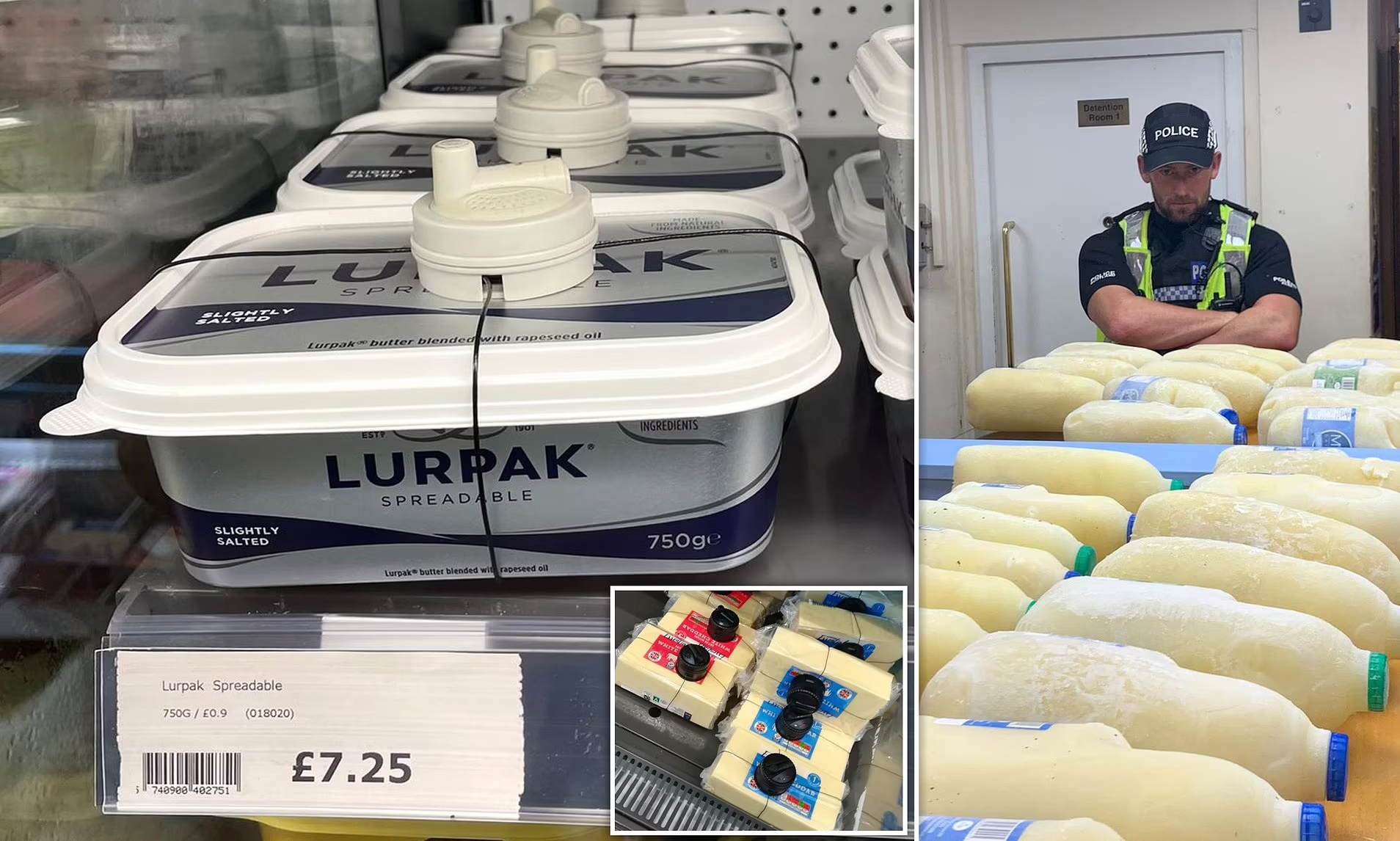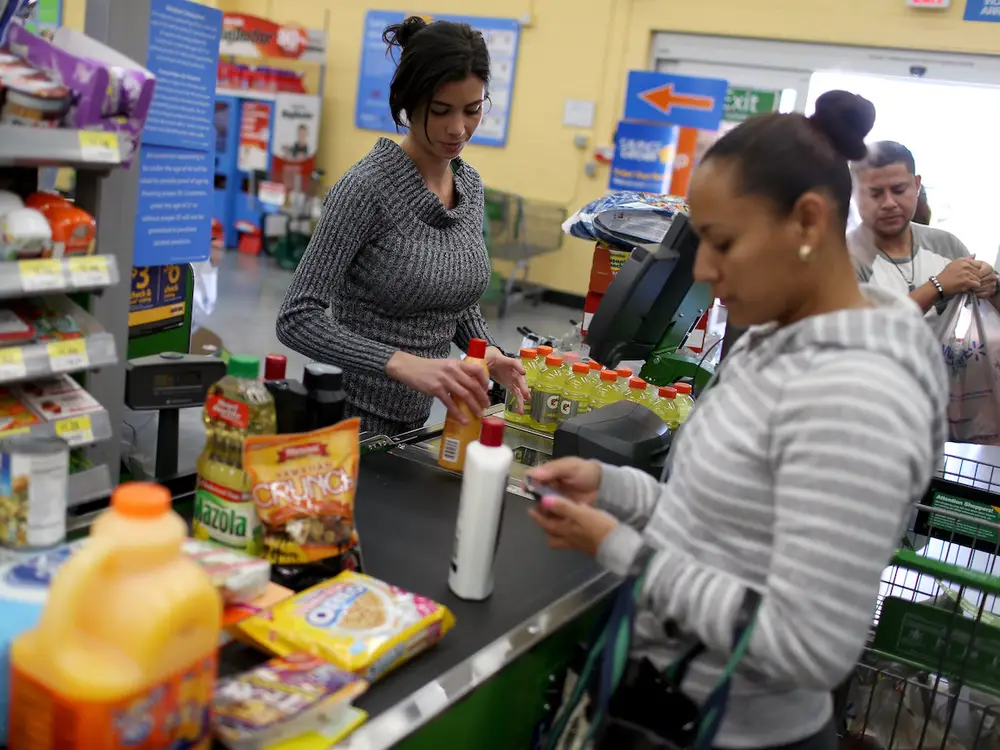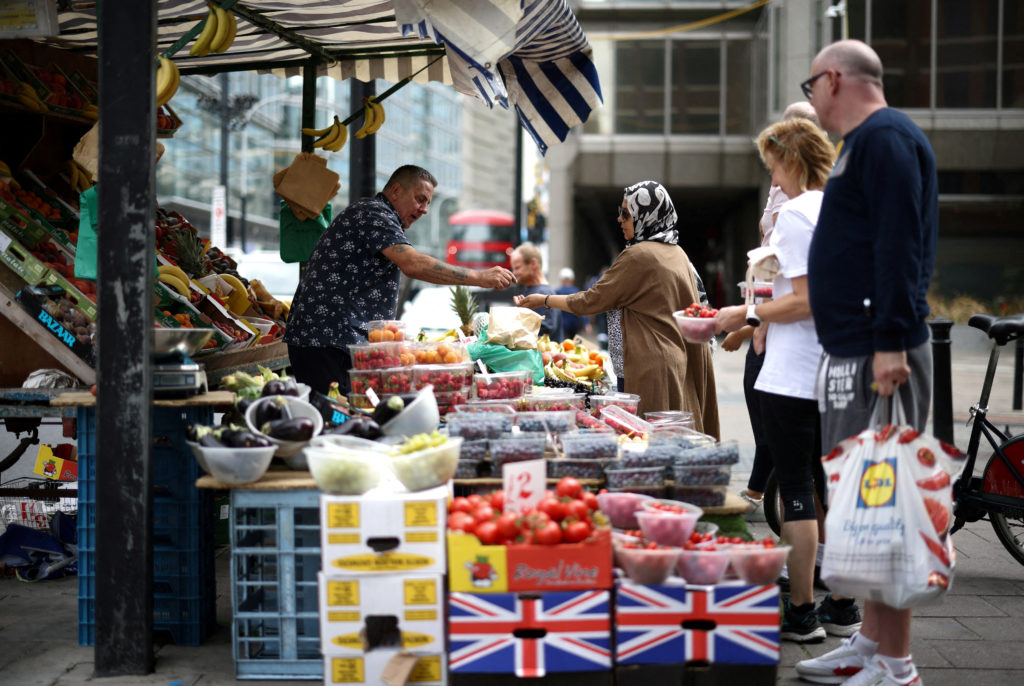Locks on Fridges: This Is How British Stores Reacted To the Cost of Living Crisis

The Britons live in light of successive crises in all health, living, and social sectors, while prices are increasing and commodities and energy resources are scarce, the country is also witnessing high rates of theft and strikes, demanding an improvement in the social and living conditions of many groups in line with the endless rates of inflation, before which the British government stands helpless without any solutions that would protect citizens from its impacts.
In light of the unprecedented rise in prices and the global economic crisis, some British stores have resorted to tightening locks on the doors of their refrigerators, in conjunction with a noticeable increase in the theft of food products while shopping inside them.
However, what is surprising is the new steps taken by these stores, which included placing locks on the food products themselves or placing them in closed plastic boxes, in addition to appointing security guards to stand next to meat, milk, and other products.
According to British statistics, thefts in British stores increased by 18% in the 12 months ending in June 2022, compared to the same period in 2021.
It is noteworthy that there are other fears that indicate the possibility of higher prices in light of the economic crisis hitting the UK after its withdrawal from the EU, and in conjunction with the military and financial support provided by Britain to Ukraine in its war against the Russian invasion.
Locks on Fridges
In a strange scene for supermarkets in the UK, several supermarkets recently placed security locks on fridges for meat, milk, butter, and alcoholic beverages amid a wave of shoplifting due to the effects of the cost-of-living crisis that casts a shadow on the Britons, according to what was published by The Telegraph.
The British newspaper, The Mirror, reported last week that some major supermarkets in the UK have resorted to installing anti-theft devices and placing security tags on a large number of their food products, such as milk, cheese, and eggs, in addition to laundry detergents and baby milk products to protect their stocks from depletion.
Security tags are often used on expensive or dangerous items in supermarkets, including alcoholic beverages, razors, and perfumes. The tags can only be removed by the sales assistant once the person has paid. If someone takes a security-marked item from the store without paying, an alarm will sound.
Activists also shared pictures of these precautions in two prominent stores in Britain, one affiliated with the Tesco supermarket chain in the UK, and the other being a branch of the global Aldi chain of stores.
Officials at the Tesco store in Bermondsey, London, closed the doors of the glass refrigerators containing some types of meat and directed customers to seek help from employees if they wanted to buy.
Store officials posted signs on the glass doors that read, “In order to protect stock and abundance, this door has been locked. Please ask a staff member for help.”
In my local @AldiUK you now have to ask shop assistant for them to bring steaks from stock room. To stop shoplifting.
— Harry Wallop (@hwallop) January 6, 2023
I’ve seen security tags on high value products in supermarkets – but never this.
Grim times. pic.twitter.com/xKPaUlmfKu
The workers attached on the shelves the product’s directive phrases to customers, in which it was written, “Meat is provided upon request, please check the available goods on the right side, and request them by name from one of our employees. These products are only available on demand to keep our customers and our community safe from antisocial behavior.”
Tesco puts security tags on milk after surge in ‘thefts’ in cost of living crisis pic.twitter.com/eFpNoFcqzs
— London & UK Street News (@CrimeLdn) November 22, 2022
In turn, British journalist Harry Wallop published photos he took in a store where store officials sealed meat, alcoholic beverages, and sweets to keep them from being stolen.
Journalist Wallop reported that he asked why those strange signs were put up, to which one of the employees replied, “If we offer steaks outside, they will be immediately stolen from the store.”
Also in the same store @HariboUKI_ sweets are obviously a target for shoplifting.
— Harry Wallop (@hwallop) January 8, 2023
20yrs ago it was @Duracell AA batteries and @Gillette razors – small and high resale value. But £1 sweets??
(Pic via @steve10086) pic.twitter.com/8Wv5dAn5yS
In response to the photos published by Wallop, the Twitter account of the Aldi chain of stores in the UK attached a tweet in which he confirmed that this step was not approved by all stores in the country but rather an individual act from its branch in London.
Hi there. Thanks for your message. We can confirm that this is not a Nationwide policy and has only been implemented in one store in London. Thanks again, Abby-Louise
— Aldi Stores UK (@AldiUK) January 12, 2023
The management of Tesco stores also clarified that the same procedure was not ordered by its main office but rather an individual action by officials at the Tesco branch in Bermondsey, London, stressing that the locks on the glass doors inside that branch were removed later.
It is noteworthy that retailers in Britain suffer from the growing phenomenon of theft, which cost them about five billion pounds last year, while experts say that thefts may cost stores up to 15% of their profits.
However, this phenomenon worsened after middle-class Britons became involved in it, with the country’s economy contracting and living conditions deteriorating.
Tesco and Sainsbury’s, among more than 100 stores, asked the British police in August 2022 to focus on shoplifting crimes, showing their lack of sympathy for people who steal.

Cost of Living Crisis
In the same vein, many people on social media have expressed their fears that those who steal things while shopping, especially daily consumption products, do so because they cannot deal with the high cost of living that the UK is witnessing.
But some, including people claiming to work in the stores, said the products were often stolen by petty criminals or irregular immigrants who sold them on doorsteps or in bars.
In August 2022, activists circulated a video recording on social media of dozens of teenagers as they stormed a McDonald’s restaurant chain in the British city of Nottingham.
The restaurant appears in the video, filled with young people of both genders, screaming and scrambling to steal what was available of food or drinks amid the fear of the workers.
British media quoted the police as saying they had investigated the incident very seriously but could not arrest anyone for the break-in and looting.
It added that the same group tried to repeat the same thing in a nearby restaurant on the same street, but they fled after the police arrived at the scene.
This is not the first time that scenes like this have appeared in UK stores, as last year saw several stores put security signs on goods that were vulnerable to theft due to their high price at the time, such as milk, eggs, and butter.
It is noteworthy that the British government is currently facing calls for general labor strikes to obtain wage increases to match the escalating expenses resulting from the rise in basic commodity prices in the country.

Shoplifting
Cases of shoplifting in UK stores rose 16% in the three months to October 2022, according to Freedom of Information requests from The Telegraph.
Tesco and Sainsbury’s were the most targeted supermarkets, accounting for two-fifths of cases overall, as reported by The Telegraph.
In England and Wales, nearly 275,000 shoplifting offenses were recorded by police in 2021/22, the Office for National Statistics reports.
The year with the highest number of shoplifting offenses since 2002 was 2017/18, when 382,650 were recorded.
In 2022, the Minister of Police told officers not to ignore thieves who steal food out of desperation during the cost of living crisis, following a warning from Chief Inspector Andy Cooke, who said rising prices would lead to an increase in crime and pose a challenge to the police.
Food prices for shoppers jumped to 13.3% last December, up from 12.4% last November.
Grocery inflation hit a record 14.7% in December, adding an extra £682 to the average annual shopping bill.
The Office for National Statistics also revealed that households now pay 90% more for gas, electricity, and other fuels.
Annual consumer price inflation in the UK jumped to 11.1% last October, the highest rate in 41 years.

In turn, the activist residing in Britain, Mr. Ossama Mohammed, confirmed in a statement to Al-Estiklal that the Britons are struggling because of the high cost of living, pointing out that the photos circulating to put locks on some food products in stores are correct, and a large part of them has not been removed except for some that the social media has been criticized for expanding these measures on many products without any discrimination whether they are cheap or expensive.
He explained that security and guard systems in Britain were placed in gold and expensive clothing stores, pointing out that now these systems and locks are placed on milk or butter, and noting that many food products have increased in price 6 times after the Russian–Ukrainian war.
Mr. Mohammed pointed out that in the latest opinion polls, 90% of the heads of food banks in the UK warned British Prime Minister Rishi Sunak of the country’s appetite for something like a tsunami of need.
Sources
- Tesco store puts padlocks on bacon and sausages
- Steaks moved from supermarket shelves as shoplifters target high-end meat
- Tesco stores are now hiding bacon and sausages from thieves behind ‘locked doors’
- Hard-up Brits steal MILK as supermarkets put security tags on butter amid cost-of-living crisis
- Footage shows city centre McDonald's stormed by gang of youths










